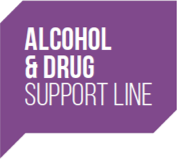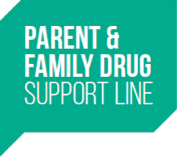Alcohol & Drug Support Services
The Alcohol and Drug Support Service provides 24/7 non-judgemental, confidential one to one telephone counselling, information, and referral for alcohol and drug use.
Live chat
During a chat session, the counsellor can:
- Find out what is going on for you
- Provide you with information about alcohol, drug use or mental health and well-being
- Provide emotional support
- Chat about treatment options
- Refer you to local services that can provide ongoing support
Alcohol and Drug Support Line
The Alcohol and Drug Support Line is a confidential, non-judgemental telephone counselling, information and referral service for anyone concerned about their own or another person’s alcohol or drug use.
The service is available 24/7 via phone.
Phone: (08) 9442 5000
Country callers: 1800 198 024
Live Chat : 7am – 10pm, daily
Email: alcoholdrugsupport@mhc.wa.gov.au
Contact with the Alcohol and Drug Support Line is one-to-one with a professional counsellor and is confidential.
The counsellor who answers your call can:
- Listen to what is going on for you
- Provide you with information about alcohol or drug use
- Provide emotional support
- Talk about treatment options
- Refer you to local services that can provide ongoing support
They can also provide:
- Interim support to individuals waiting for face to face counselling/treatment
- A free call back service to socially and geographically isolated clients
- Support to health professionals working with individuals and families impacted by alcohol or drug use
Translation support
If English is not your first language, you can get free translation support through Translating and Interpreting Service by phoning 131 450.
Speech or hearing difficulties
If you have speech or hearing difficulties you can contact us by phone through the National Relay Service.
Parent and Family Drug Support Line
The Parent and Family Drug Support Line is a confidential, non-judgemental telephone counselling, information and referral service for families and carers concerned about a loved one’s alcohol or drug use.
Professional counsellors are available via phone 24/7.
Phone: (08) 9442 5050
Country callers: 1800 653 203
Live Chat: 7am – 10pm, daily
Email: alcoholdrugsupport@mhc.wa.gov.au
Contact with the Parent and Family Drug Support Line is one-to-one with a professional counsellor and is confidential.
The counsellor who answers your call can:
- Listen to your concerns about your current situation
- Provide you with information about alcohol or drug use
- Provide emotional support and professional advice
- Offer to transfer you to a parent volunteer for peer support
- Talk about support options for you and your loved one
- Refer you to local services that can provide you and your family with ongoing support.
If you're unsure how to start a conversation with your child about drugs or are worried they may be using drugs you can also read the Parent and Family Information and Support Pack.
Parent support network
In addition to professional counsellors, the Parent and Family Drug Support Line has a network of trained parent volunteers who have experienced their own child’s alcohol or drug use and know first-hand the kind of pressures placed upon the whole family as a result.
The volunteers know how important it is to be able to talk to someone who understands the situation, someone who won’t judge them and someone who can share what worked and what didn’t for them when they were faced with similar challenges.
Parent volunteers are available between 8:00am and 10:00pm each day and will listen to your concerns, share coping strategies and explore options to help manage your situation.
Translation support
If English is not your first language, you can get free translation support through Translating and Interpreting Service (TIS National) by phoning 131 450.
Speech or hearing difficulties
If you have speech or hearing difficulties you can contact us by phone through the National Relay Service.
Here For You
'Here For You' is a statewide confidential, non-judgemental, telephone service for anyone concerned about their own or another person's alcohol and other drug use and/or mental health issues.
'Here For You' counsellors and peer practitioners can:
- Listen to what is going on for you and/or the person you care about;
- provide emotional support;
- provide information about alcohol and other drug use, mental health and wellbeing;
- explore coping and relapse prevention strategies; and
- discuss options and offer information about local services.
Call Here For You on 1800 here4u (1800 437 348) from 7am to 10pm everyday.
Email: hereforyou@mhc.wa.gov.au
Website: https://ww.mhc.wa.gov.au/hereforyou
My Services online directory
It's important that you find the right service for you and keep looking if you haven't found it yet. If you are ever in doubt seek advice from a health professional such as a GP.
For more information see My Services online directory here
Lifeline
24 Hour Telephone Crisis Support
13 11 14 is a confidential telephone crisis support service available 24 hours a day, 7 days a week from a landline, payphone or mobile.
Anyone across Australia experiencing a personal crisis or thinking about suicide can contact Lifeline. Regardless of age, gender, ethnicity, religion or sexual orientation their trained volunteers are ready to listen, provide support and referrals.
What happens when you call 13 11 14
Their trained Telephone Crisis Supporters will answer your call and:
- Listen to your situation
- Provide immediate support
- Assist to clarify options and choices available to you
- Provide you with referral information for other services in your local area
Emergency 000
If a person is unwell they need help as soon as possible. Knowing how to respond and getting help can save a life.
Call 000 for an ambulance immediately.
If you are worried that you will get yourself or the person into trouble, don't forget that you are helping and later people will be thankful that you did.
The ambulance officers are only interested in helping and police will not be contacted unless they feel threatened or if someone has died.
When you call 000, stay calm and speak slowly and clearly.
A Communication’s Officer will ask you a series of questions to ensure the most appropriate ambulance response is provided.
The Communication’s Officer will give you advice over the phone to assist the patient prior to the arrival of an ambulance.





